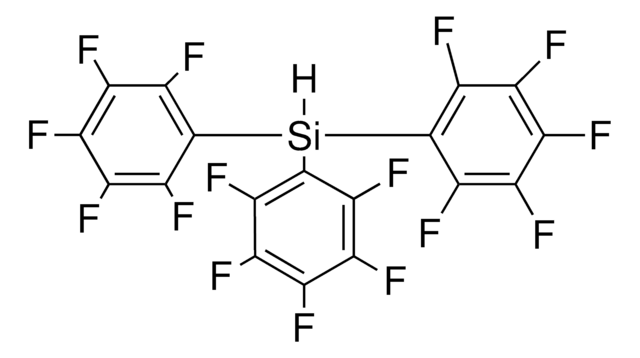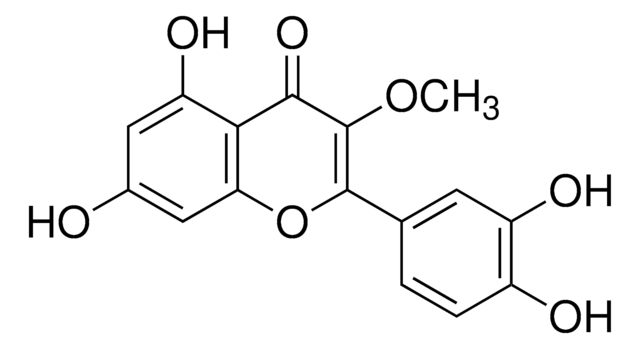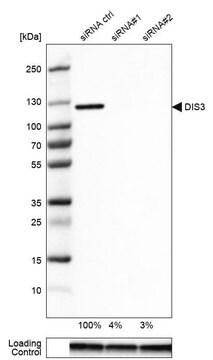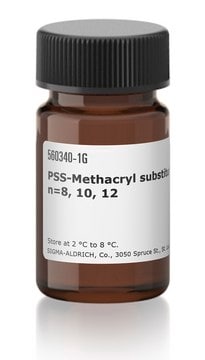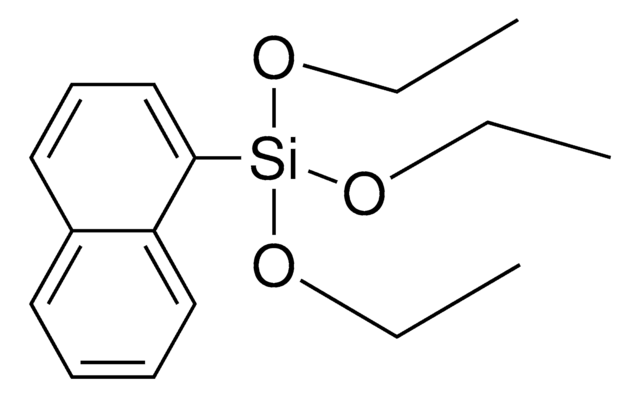SML0108
R18 trifluoroacetate
≥98% (HPLC)
Synonyme(s) :
L-Prolyl-L-histidyl-L-cysteinyl-L-valyl-L-prolyl-L-arginyl-L-a-aspartyl-L-leucyl-L-seryl-L-tryptophyl-L-leucyl-L-a-aspartyl-L-leucyl-L-a-glutamyl-L-alanyl-L-asparaginyl-L-methionyl-L-cysteinyl-L-leucyl-L-proline trifluoroacetate, PHCVPRDLSWLDLEANMCLP trifluoroacetate, Pro-His-Cys-Val-Pro-Arg-Asp-Leu-Ser-Trp-Leu-Asp-Leu-Glu-Ala-Asn-Met-Cys-Leu-Pro trifluoroacetate
About This Item
Produits recommandés
Pureté
≥98% (HPLC)
Forme
powder
Couleur
white to off-white
Conditions d'expédition
wet ice
Température de stockage
−20°C
Chaîne SMILES
OC(=O)C(F)(F)F.CSCC[C@H](NC(=O)[C@H](CC(N)=O)NC(=O)[C@H](C)NC(=O)[C@H](CCC(O)=O)NC(=O)[C@H](CC(C)C)NC(=O)[C@H](CC(O)=O)NC(=O)[C@H](CC(C)C)NC(=O)[C@H](Cc1c[nH]c2ccccc12)NC(=O)[C@H](CO)NC(=O)[C@H](CC(C)C)NC(=O)[C@H](CC(O)=O)NC(=O)[C@H](CCCNC(N)=N)NC(=O)[C@@H]3CCCN3C(=O)[C@@H](NC(=O)[C@H](CS)NC(=O)[C@H](Cc4c[nH]cn4)NC(=O)[C@@H]5CCCN5)C(C)C)C(=O)N[C@@H](CS)C(=O)N[C@@H](CC(C)C)C(=O)N6CCC[C@H]6C(O)=O
InChI
1S/C101H157N27O29S3.C2HF3O2/c1-48(2)33-62(86(142)111-60(25-26-77(131)132)83(139)110-53(11)81(137)114-67(39-76(102)130)91(147)112-61(27-32-160-12)85(141)124-72(45-158)95(151)122-70(36-51(7)8)98(154)128-31-18-24-75(128)100(156)157)116-93(149)69(41-79(135)136)121-87(143)63(34-49(3)4)115-89(145)65(37-54-42-108-57-20-14-13-19-56(54)57)118-94(150)71(44-129)123-88(144)64(35-50(5)6)117-92(148)68(40-78(133)134)120-84(140)59(22-16-29-107-101(103)104)113-97(153)74-23-17-30-127(74)99(155)80(52(9)10)126-96(152)73(46-159)125-90(146)66(38-55-43-105-47-109-55)119-82(138)58-21-15-28-106-58;3-2(4,5)1(6)7/h13-14,19-20,42-43,47-53,58-75,80,106,108,129,158-159H,15-18,21-41,44-46H2,1-12H3,(H2,102,130)(H,105,109)(H,110,139)(H,111,142)(H,112,147)(H,113,153)(H,114,137)(H,115,145)(H,116,149)(H,117,148)(H,118,150)(H,119,138)(H,120,140)(H,121,143)(H,122,151)(H,123,144)(H,124,141)(H,125,146)(H,126,152)(H,131,132)(H,133,134)(H,135,136)(H,156,157)(H4,103,104,107);(H,6,7)/t53-,58-,59-,60-,61-,62-,63-,64-,65-,66-,67-,68-,69-,70-,71-,72-,73-,74-,75-,80-;/m0./s1
Clé InChI
RLMYFUMCZYJMNX-KIXMOXNVSA-N
Description générale
Application
Actions biochimiques/physiologiques
Code de la classe de stockage
11 - Combustible Solids
Classe de danger pour l'eau (WGK)
WGK 3
Point d'éclair (°F)
Not applicable
Point d'éclair (°C)
Not applicable
Certificats d'analyse (COA)
Recherchez un Certificats d'analyse (COA) en saisissant le numéro de lot du produit. Les numéros de lot figurent sur l'étiquette du produit après les mots "Lot" ou "Batch".
Déjà en possession de ce produit ?
Retrouvez la documentation relative aux produits que vous avez récemment achetés dans la Bibliothèque de documents.
Notre équipe de scientifiques dispose d'une expérience dans tous les secteurs de la recherche, notamment en sciences de la vie, science des matériaux, synthèse chimique, chromatographie, analyse et dans de nombreux autres domaines..
Contacter notre Service technique
